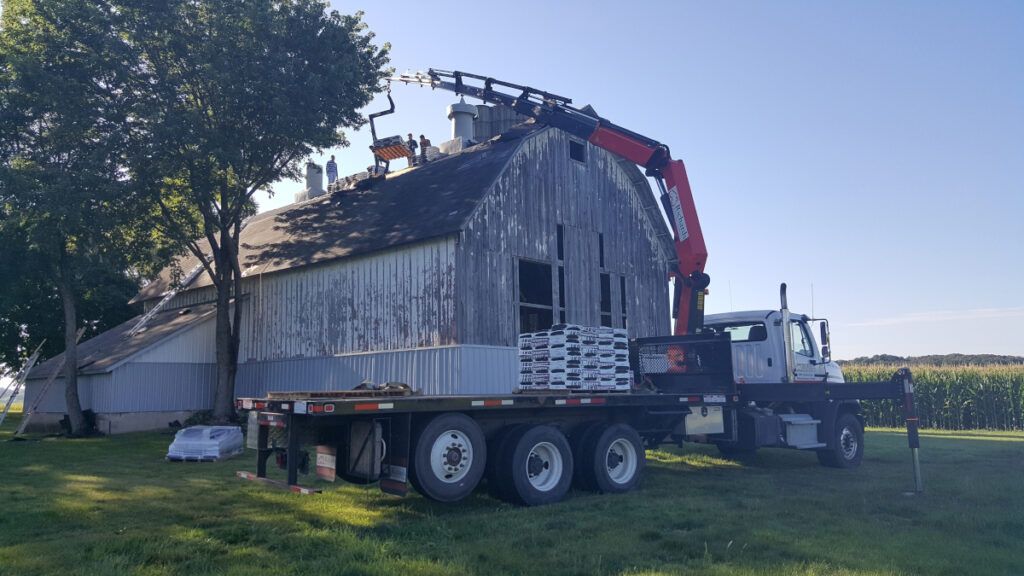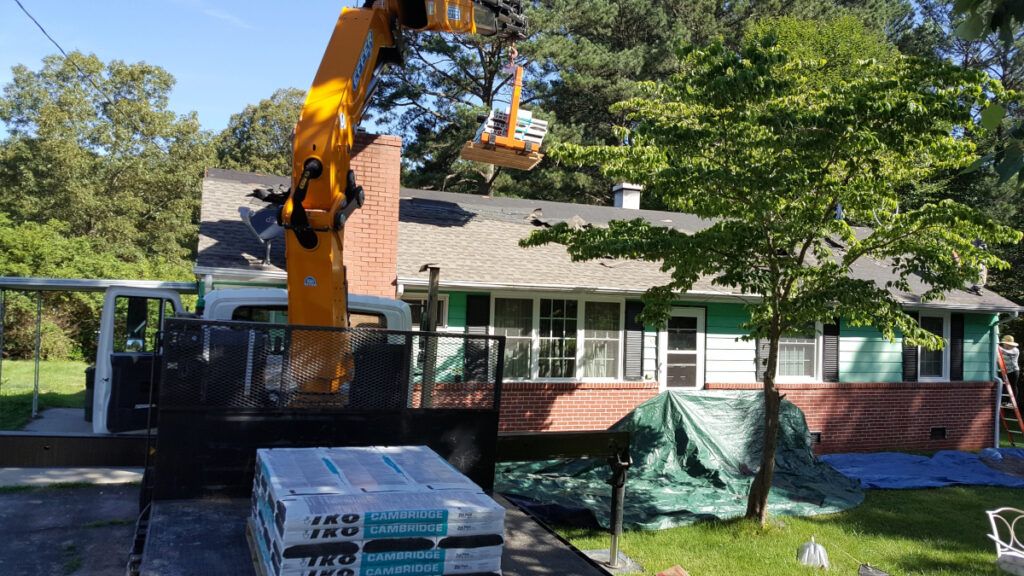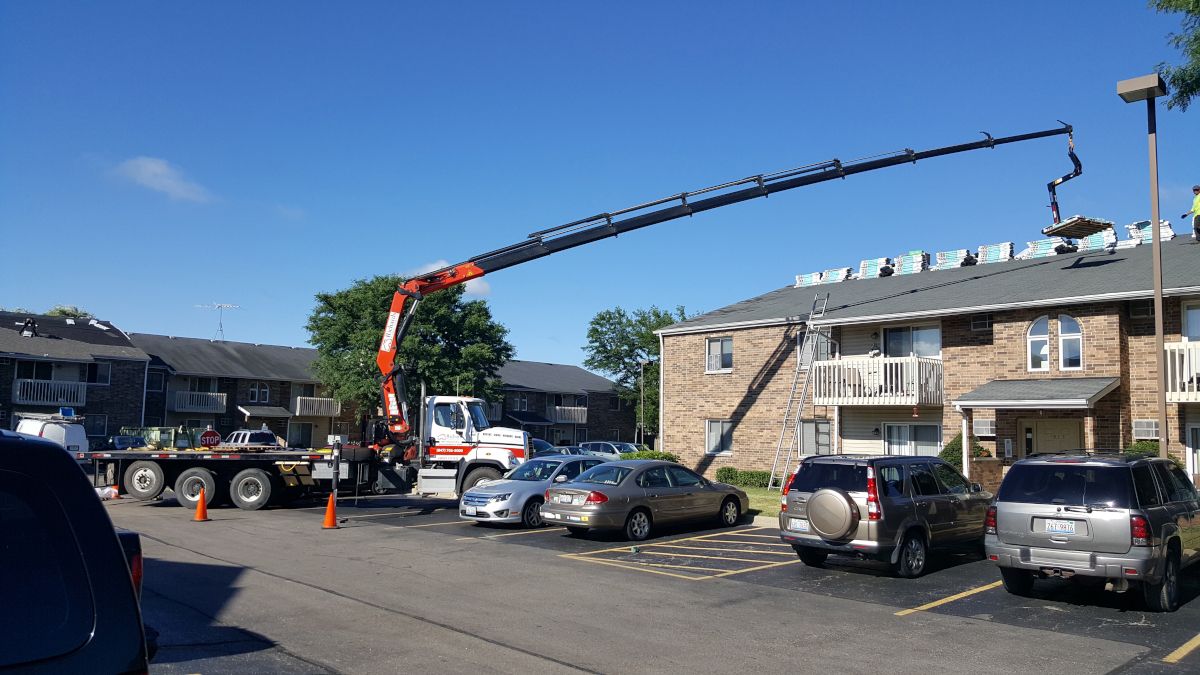With unpredictable tariffs driving costs up and an estimated shortfall of 439,000 workers, the construction industry is operating in a state of uncertainty as stakeholders from contractors to building materials distributors brace for the economic fallout of the current administration’s trade policies.
The industry is already feeling the effects, with nearly one in four contractors experiencing a tariff-related project delay or cancellation in May, according to a survey by Associated Builders and Contractors (ABC).
While profit margin expectations improved in this past May, 87% of survey respondents received notification of tariff-related price increases for materials, putting pressure on margins in the coming months as the impact of the newly-enacted 50% steel and aluminum tariffs is fully realized.
 Complexities on the delivery front
Complexities on the delivery front
For building materials distributors, economic challenges are not the only hurdle they face, as highly dynamic building trades put a premium on delivery performance to keep projects on schedule, costs down and customers happy.
To meet contractors’ growing expectations of precision and responsiveness, distributors need to balance agility and productivity with cost mitigation and profit targets—all while accommodating a challenging range of specialized delivery parameters, including:
- Short lead times, often less than 24 hours
- Varying unloading times and complexity of delivery
- Diverse mix of shapes and sizes of materials
- Different types of trucks (e.g., boom trucks, vans, dump trucks)
- Extremely tight time windows for delivery
- Custom requests from contractors
- Bulky deliveries (e.g., modular buildings, prefabricated structural components)
- Specialized loading and offloading requirements (e.g., forklifts, cranes, telescopic handlers)
- Incomplete delivery addresses, common with new buildings or areas
These factors touch every part of the distribution journey—from planning routes before the materials leave the yard to real-time route optimization and proof of delivery (POD) once the goods are received at the job site—impacting customer satisfaction, driver safety, and claims and dispute resolution along the way.
Manual practices fall short
Building materials distributors are quickly realizing that status quo delivery practices are incapable of generating the efficiency, cost savings, and customer experience necessary to differentiate their business in 2025, especially given today’s thin margins threatening profitability.
Richards Building Supply (RBS), a wholesale distributor of building materials with over 60 locations serving 15 states, recognized the need to eliminate time-consuming and error-prone manual processes in its supply chain, particularly around last-mile delivery, in order to heighten delivery efficiency, improve on-time performance and increase delivery volumes.
Automating delivery processes
Limited by a lack of real-time visibility into delivery operations and struggling with the ineffectiveness of paper-based POD for preventing disputes and claims related to damaged and missing materials, RBS turned to technology to streamline its last-mile workflow.
The building materials distributor implemented the Descartes route optimization and mobile solution with the aim of reducing costly claims and ensuring consistent, on-time delivery to its growing customer base.
Optimized delivery routes amplify efficiency
By replacing traditional paper-based route planning with an automated artificial intelligence (AI)-powered route optimization solution, RBS improved on-time delivery performance while reducing costs and maximizing capacity utilization.
Real-time updates from GPS-tracked vehicles provide visibility into vehicle location and delivery status; RBS can monitor delivery times against customer expectations and notify customers of delivery progress.
It is far easier to keep customers informed during the day and, with automated rescheduling and route adjustments, RBS can easily change orders and minimize disruptions to help contractors better manage project schedules—a bonus when weather interferes with planned work and the associated planned deliveries.
Bumping up capacity
By optimizing scheduling and delivery processes to ensure the right product is loaded onto the right truck and unloaded safely and efficiently at the job site, RBS has been able to ramp up delivery capacity. RBS can better manage customer orders for our diverse product mix in vehicles of appropriate sizes and with the necessary offloading capabilities.
Safety is job one
Driver safety is a serious priority for building supply companies delivering materials of all dimensions and weights and characterized by specialized vehicle and equipment requirements. By leveraging real-time visibility and mobile applications to guide drivers’ workflows, technology is paving the way for safe, compliant deliveries.
RBS take advantage of telematics devices and forward- and rear-facing dash cams in our vehicles, coupled with mobile devices for our drivers, to enhance driver safety. Plus, it has automated driver vehicle inspection reports (DVIRs) and enabled drivers to engage with safety training videos on their mobile devices.
 Reducing claims and disputes
Reducing claims and disputes
Proving that a delivery occurred as planned—while following safety procedures and ensuring no damage occurred to either the materials or the job site—is a challenge without the benefit of delivery-related photos (e.g., equipment setup, job site, product delivery location, condition of materials) for verification.
By extending technology to the field, RBS can facilitate the capture of important information (e.g., digital photos, e-signatures) to exonerate damage claims and speed up cash flow, while reducing friction in its drivers’ workday.
In the past, RBS’ rate of losses, disputes and claims was unacceptable. It didn’t have before-and-after photos of job site conditions and, if nobody was on site when it delivered the materials, there was no visual record to refer to if anything was missing once the contractor or crew arrived. By capturing images using mobile POD, RBS was able to prevent mis-deliveries, resolve disputes quickly and significantly reduce costly claims.”
The road ahead
AI and digital transformation are shaping the future of building supply logistics, dramatically improving delivery productivity and creating a differentiated end-to-end customer experience that helps grow the top and bottom line.
Notably, building materials distributors still relying on legacy systems and paper-and-pen processes risk becoming second choice when contractors are making purchase decisions, in addition to incurring higher operational costs due to inefficiencies introduced by unnecessary repetitive tasks.
RBS believes customer engagement, underpinned by digital transformation across delivery operations and driven by improved access, seamless system integration, and real-time visibility throughout the sales order process—from quoting through deliveries and returns—is integral to growth moving forward.
Today, technology-driven customer engagement may be viewed as a value-add or competitive edge in the building supply sector, but tomorrow it will be considered standard practice for building customer loyalty and driving revenue.
At RBS, it is ahead of the game. By deploying automated route planning and optimization, scheduling, and mobile solutions, it already is reaping the performance and profit rewards.
Jenny Vetter is Logistics Manager at Richards Building Supply (RBS), and Cyndi Brand is, VP Fleet Solutions at Descartes.












